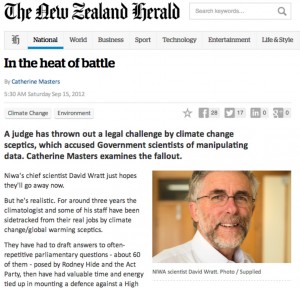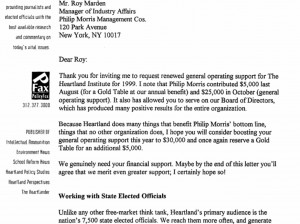– That little saying is a favorite of mine.
– Here’s a story from my city, Christchurch, New Zealand, that will illustrate the problem quite well.
– If you will, please, read the story below and then at the end I will tell you how it is all going to turn out – and you will see the point of the saying that “No single raindrop thinks that it is responsible for the flood”.
– dennis
= = = = = = = = = = = = = = =
Big shakeup coming for Chch hospitals
New Zealand’s private healthcare system is set to be shaken up by the imminent arrival of a new hospital in Christchurch.
Forte Health, the multimillion-dollar specialist, short-stay hospital owned entirely by surgeons, is two months from opening and is already causing controversy.
The newcomer’s 25 shareholders are all specialist surgeons – absorbing every urologist in Christchurch, half of the city’s orthopaedic surgeons and most of its ear, nose and throat specialists, The Press understands.
Concerns have been raised about Forte’s shareholder-surgeons having a vested interest in shepherding patients towards their hospital for personal gain and health economists have criticised Forte’s short-stay model as “cherry-picking” the private market.
Christchurch’s two existing private hospitals are feeling the squeeze from Forte and will inevitably lose millions of dollars in revenue once it opens.
St George’s and Southern Cross hospitals both have 10 operating theatres in Christchurch and Forte will be adding another four into the mix, while gunning for the biggest volume of surgery in the market.
Forte is targeting the less-complex day surgeries from four key specialties: Ear, nose and throat; urology; gynaecology; and orthopaedics.
St George’s Hospital chief executive Greg Brooks said Forte’s arrival raised some difficult questions about the future.
Brooks was already investigating other potential revenue streams to help ease the loss of day surgeries.
“The challenge from our perspective is that as surgeons they can direct patients to their hospital and so it is a real risk for us,” he said.
Auckland University health economist Professor Toni Ashton said if a patient goes to a Forte surgeon for a consultation “of course they are going to direct them into their business, they are the shareholders for goodness sake”.
This new surgeon-shareholder business model will force Christchurch’s existing private hospitals out of the competition for day surgery, Brooks said.
And, if this model gains momentum, surgeons across the country could view it as a “vehicle for income opportunities” and this could lead to an upheaval of private healthcare in New Zealand, he said.
“We are all waiting to see what will happen.”
Forte Health chairman David Barker said the hospital had grown out of the earthquake-damaged Oxford Clinic and that it would be “replacing and enhancing competition” in the private market that was lost as a result of the quake.
Forte surgeons would continue to operate in the public sector and at the city’s other two private hospitals, he said.
The shareholder-surgeons were aware of their ethical responsibilities and would only direct patients toward Forte “if their surgery is suited to that environment”, Barker said.
Ian Powell, a senior doctors’ spokesman speaking in a personal capacity, said Forte was defining a niche within the market by targeting less complex surgeries, but “if I was in St George’s chair, I would see that as cherry-picking”.
The cost of running short-stay facilities was considerably less to other hospitals and New Zealand Medical Association chairman Dr Mark Peterson said Forte’s costs must reflect “that they are a lower-risk facility”.
“If they are charging the same rates for a lower acuity facility, I might have some concerns about that,” he said.
Southern Cross Hospitals chief operating officer Tau-Loon Ho said there had been recent increases in specialist owned short-stay clinics aimed at providing less complex care, but “what is concerning is the increasingly high cost of simple procedures being undertaken by many of these facilities”.
Academic Dr Michael Gousmett, who is an expert on charitable hospitals, said Forte would also put pressure on the public sector by “spreading our surgeons too thinly on the ground”.
Yet, CDHB chief executive David Meates said the establishment of Forte Health would not have any significant impact on the public sector.
The new hospital is expected to open on January 20.
QUALITY CARE OR PRIME CUT?
It is the lull before the storm for Christchurch’s private-health sector.
Come January next year, a new multimillion-dollar, glass-encased surgical hospital in Kilmore St will open its doors and cause a huge upheaval in the region’s health arena.
Forte Health is poised to enter the private-hospital realm with a small army of 25 specialist surgeons as its shareholders.
It will be targeting the biggest volume of surgery in the market – the short-stay, less-complex procedures – from four key specialties: ear, nose and throat, urology, orthopaedics and gynaecology.
It is understood all of the city’s urologists, at least half of its orthopaedic surgeons and all but one ear, nose and throat surgeon are shareholders in the venture.
The three-storey hospital will have 14 patient beds, four operating theatres and in excess of 100 staff and clinicians.
It is the most competitive beast to enter Christchurch’s private-health sector and, with the countdown on for open day, the city’s two existing private hospitals, St George’s and Southern Cross, are starting to sweat.
The newcomer will soak up hundreds of surgeries and million of dollars of revenue from their books.
Forte is less than two months off opening and questions have started to circle on the ethics of a private hospital owned entirely by surgeons who will have a vested interest in directing patients toward their hospital for financial gain.
Health economists and experts also query the way the new enterprise appears to be “cherry-picking the private sector” by targeting the easiest operations.
“This is a significant issue for us,” St George’s Hospital chief executive Greg Brooks said.
“The challenge from our perspective is that as surgeons they can direct their patients to their hospital and so it is a real risk for us.” Brooks said.
“What we need to be able to do is counter that by being able to provide good quality facilities so that the surgeons are encouraged to deliver their care here.”
Both St George’s and Southern Cross would struggle to compete for day surgeries against Forte because “our ability to influence the patients’ choice of selection is very small because the surgeon always meets the patient”, Brooks said.
This would leave St George’s and Southern Cross with the day-surgery leftovers and the more complex patients that Forte did not have the ability to care for.
St George’s was already actively looking at “diversification of revenue streams” to mitigate the birth of Forte, he said.
“You have to accept that competition comes and you have to adapt the business the best you can.”
If Forte’s shareholder-surgeon model gained momentum “and surgeons view this as a vehicle for income opportunities for the future”, it might be replicated all over New Zealand which would have a massive impact on our country’s health sector, Brooks said.
“We are all waiting to see what will happen.”
Southern Cross Hospitals chief operating officer Tau-Loon Ho said there had been a recent increase in the number of specialist-owned, short-stay facilities that were “geared toward the lower-cost, less-complex end of the spectrum”.
The cost of running such facilities was considerably less than more comprehensive hospitals, but “what is concerning is the increasingly high cost of simple procedures being undertaken by many of these facilities”, he said.
Forte Health was born out of the closure of the Oxford Clinic after it was damaged in the earthquakes.
The private clinic was run off the shareholder-surgeon model and, when it needed to relocate, other specialists in the city saw this as an opportunity to join forces and build a multimillion-dollar “larger and more comprehensive short-stay facility”, Forte Health chairman David Barker said.
The new hospital would be “restoring some competition in the private-hospital market which was lost as a result of the earthquakes”, he said.
The hospital’s surgeon-shareholder model was not an ethical issue as surgeons were aware of their responsibilities.
Patients would be directed to the most appropriate facility for their care, Barker said.
Surgical costs were still unknown for Forte but, Barker said, “we want to be efficient in all aspects, not just clinical but also financial”.
Senior doctors’ spokesman Ian Powell said Forte was smart to focus on the less complex procedures, but this could also be deemed as “cherry-picking the market”.
Powell, who is the executive director of the Association of Salaried Medical Specialists but was speaking in a personal capacity, said the private sector entered the market only when it could see a demand and “like a corner dairy, they will only put products on shelves that they know will sell”.
If the facility was set up only for easy, low-risk procedures, its prices should reflect this, Powell said.
Other hospitals around the country were run off the shareholder-surgeon model and there were strong ethical guidelines around this, he said.
“If they are deliberately directing people to use private services because of their personal advantage than that’s a no-no and, if people behave naughty, or in a way that’s unprofessional, they can put their employment with the DHB at risk.”
Professor Tony Blakely, of Otago University’s department of public health in Wellington, said there was a best- and worst-case scenario with the arrival of Forte.
The best-case scenario was that the new venture would provide cost-effective services in the most efficient manner possible.
The worst-case scenario was that it “merely serves to boost specialist incomes, divert specialists away from public delivery of services and cream skims off easier patients”.
To the original article: ➡
= = = = = = = = = = = = = = =
– After reading the story, you can see that this is going to be good for the physicians that setup the new private hospital and it is going to be bad for the public healthcare system which is going to inherit the tougher in-patient cases while losing the more profitable out-patient cases.
– But, as an American, speaking from our history, I can tell you it will get worse than that in time.
– After these 25 doctors own this private hospital for a while and it becomes obvious that it is a successful and going concern, then either the urge to take it public will become irresistible or some existing corporation with deep pockets will simply come along and buy the entire thing.
– In either case, the owner physicians will stand to make a huge chuck of money and the organization itself will pass into the hands of a public for-profit corporation.
– Sadly, we’ve seen this cycle in the U.S.
– Originally, a few decades ago, most U.S. doctors had their own private practices. But, after a time, running their own accounting, acquiring and owning their own medical equipment (very expensive) and each having his or her own office staff and quarters became burdensome.
– So they began to band together into group clinics with shared medical equipment and receptionists. They farmed their accounting out to specialist medical accounting services and they got down to just having to have one or two nurses on-staff.
– Eventually, they were ‘noticed’ by large American corporations who realized that these clinics were absolute ‘cash cows’ and they started to buy them up. This buying up has now consolidated most previously independent medical practices in the U.S. into medical corporations.
– The doctors in the clinics were persuaded to join this consolidation by money and how easy life was going to be for them post-acquisition. No staffing worries – it would all be handled by the corporate mothership. No equipment worries. Nice offices were provided. All the insurance and other logistical nightmare would all be sorted out for them. All they had to do after the acquisitions was to come into work and be doctors and see patients. What a sweet deal.
– But, of course, the darker side was that corporation’s primary reason for existing was and is to maximize the return on their shareholder’s investments in them.
– And implementing such maximization involves a few simple ideas: minimize costs and maximize profits. All good? Then go around and repeat again.
– Hence the bean counters arrived and now every medical procedure, like an MRI or an optional lab test, had to be ‘justified’, Justified not only on the physician’s thought that it was going to be a necessary part of the diagnosis but on the basis of whether or not it was justified in terms of being cost effective. Is there a cheaper way? How many patients might be lost they don’t receive the procedure or test? How many can we lose and it still will be an acceptable rate? And etc.
– I know a physician in the U.S. who was my G.P. for two decades and who became a friend of mine as well.
– We were discussing this one day and he told me that each time he prescribes an MRI to investigate some issue or other, he has to fill out 30 minutes worth of paper work for each procedure to justify it and its the costs. And since he is booked (mandated by the corporation for efficiency reasons) to see a new patient every 20 or 30 minutes all day long, there’s rarely any time during the work day to fill these papers out. So, if he wants to order the tests, then he has to stay over at the end of the day to do the paperwork.
– He said that some days he’s just exhausted at day’s end and because of that, if a case is really marginal and the patient might be OK without the MRI, he might just skip it.
– He told me that he worries that one or two of the folks he skipped might have received a life-saving diagnosis, if they would have had their MRI. And thus they died unnecessarily. And that this played on his conscience and he felt it was a direct result of medicine in the U.S. being turned into a for-profit corporate exercise wherein decisions were being made on a cost basis rather than on a patient health basis.
– So, when I say that the new private Christchurch Hospital will be worse that most folks can imagine now, this is what I mean.
– Each doctor in the new hospital obviously sees a nice opportunity to make money by doing this. And thus begins the dance that will end badly.
– Thus I say, “No single raindrop thinks it is responsible for the flood“.
– How long will the New Zealand Public Health System be able to subsidize private hospitals like this?
– Why do I say ‘subsidize?
– Because when the new hospital grabs up all the easy out-patient work and leaves the public system with all the harder and more costly in-patient work, that is an indirect but very functional form of subsidization. The easy money goes to the private hospital and the public has to pony up for the addition cost born by the private system.
– We in the U.S. have been down that road before and New Zealanders should be warned by our example.
– dennis



